Filter by
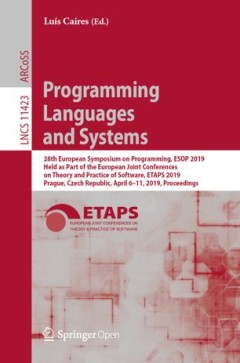
Programming languages and systems
This volume contains the papers presented at the 28th European Symposium on Programming (ESOP 2019) held April 8–11, 2019, in Prague, Czech Republic. ESOP is one of the European Joint Conferences on Theory and Practice of Software (ETAPS). It is devoted to fundamental issues in the specification, design, analysis, and implementation of programming languages and systems. The 28 papers in t…
- Edition
- -
- ISBN/ISSN
- 9783030171841
- Collation
- XV, 816 p.
- Series Title
- -
- Call Number
- 005.1 PRO p

Online hate speech in the European Union : a discourse-analytic perspective
Although ‘hate speech’ is often incorporated in legal and policy documents, there is no universally accepted definition, which in itself warrants research into how hatred is both expressed and perceived. The research project synthesises discourse analytic and corpus linguistics techniques, and presents its key findings here. The focus is especially on online comments posted in reaction to n…
- Edition
- -
- ISBN/ISSN
- 9783319726045
- Collation
- VIII, 90 p.
- Series Title
- SpringerBriefs in Linguistics
- Call Number
- 323.443094 ASS o
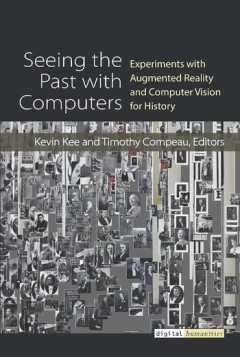
Seeing the past with computers : experiments with augmented reality and compu…
Recent developments in computer technology are providing historians with new ways to see—and seek to hear, touch, or smell—traces of the past. Place-based augmented reality applications are an increasingly common feature at heritage sites and museums, allowing historians to create immersive, multifaceted learning experiences. Now that computer vision can be directed at the past, research …
- Edition
- -
- ISBN/ISSN
- 9780472131112
- Collation
- vi, 247p. : ill.
- Series Title
- -
- Call Number
- 001.30285 SEE s
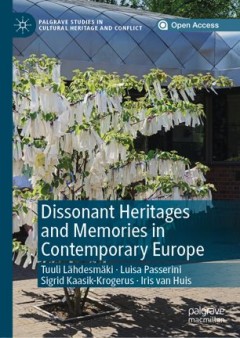
Dissonant heritages and memories in contemporary Europe
This open access book discusses political, economic, social, and humanitarian challenges that influence both how people deal with their past and how they build their identities in contemporary Europe. Ongoing debates on migration, on local, national, inter- and transnational levels, prove that it is a divisive issue with regards to understanding European integration and identity. At the same ti…
- Edition
- -
- ISBN/ISSN
- 9783030114640
- Collation
- XV, 294 p.
- Series Title
- Palgrave Studies in Cultural Heritage and Conflict
- Call Number
- 363.69 DIS d

Early public libraries and colonial citizenship in the British Southern Hemis…
This open access Pivot book is a comparative study of six early colonial public libraries in nineteenth-century Australia, South Africa, and Southeast Asia. Drawing on networked conceptualisations of empire, transnational frameworks, and ‘new imperial history’ paradigms that privilege imbricated colonial and metropolitan ‘intercultures’, it looks at the neglected role of public librarie…
- Edition
- -
- ISBN/ISSN
- 9783030204266
- Collation
- XV, 159 p.
- Series Title
- New Directions in Book History
- Call Number
- 027.409171241 EAR e
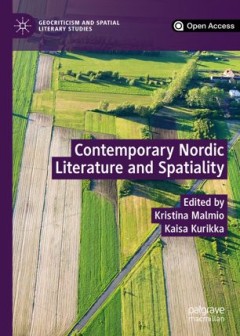
Contemporary Nordic Literature and Spatiality
This open access collection offers a detailed mapping of recent Nordic literature and its different genres (fiction, poetry, and children’s literature) through the perspective of spatiality. Concentrating on contemporary Nordic literature, the book presents a distinctive view on the spatial turn and widens the understanding of Nordic literature outside of canonized authors. Examining literatu…
- Edition
- -
- ISBN/ISSN
- 9783030233532
- Collation
- XVII, 307 p.
- Series Title
- Geocriticism and Spatial Literary Studies
- Call Number
- 839.509 CON c
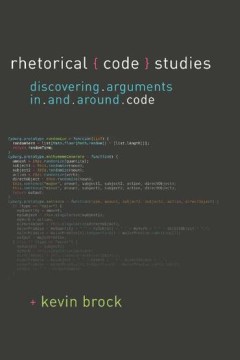
Rhetorical code studies : discovering arguments in and around code
Winner of the 2017 Sweetland Digital Rhetoric Collaborative Book Prize Software developers work rhetorically to make meaning through the code they write. In some ways, writing code is like any other form of communication; in others, it proves to be new, exciting, and unique. In Rhetorical Code Studies, Kevin Brock explores how software code serves as meaningful communication through which softw…
- Edition
- -
- ISBN/ISSN
- 9780472131273
- Collation
- xvii, 213p. : ill.
- Series Title
- -
- Call Number
- 005.13 BRO r
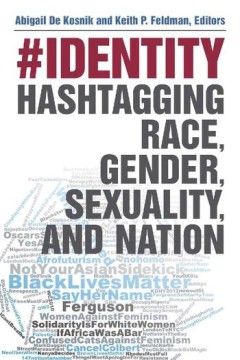
#Identity : hashtagging race, gender, sexuality, and nation
"Since its launch in 2006, Twitter has served as a major platform for political performance, social justice activism, and large-scale public debates over race, ethnicity, gender, sexuality, and nationality. It has empowered minoritarian groups to organize protests, articulate often-underrepresented perspectives, and form community. It has also spread hashtags that have been used to bully and …
- Edition
- -
- ISBN/ISSN
- 9780472074150
- Collation
- xi, 365p. : ill.
- Series Title
- -
- Call Number
- 302.30285 HAS h
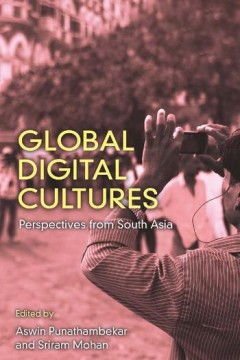
Global digital cultures : perspectives from South Asia
Digital media histories are part of a global network, and South Asia is a key nexus in shaping the trajectory of digital media in the twenty-first century. Digital platforms like Facebook, WhatsApp, and others are deeply embedded in the daily lives of millions of people around the world, shaping how people engage with others as kin, as citizens, and as consumers. Moving away from Anglo-Americ…
- Edition
- -
- ISBN/ISSN
- 9780472131402
- Collation
- viii, 317p. : ill.
- Series Title
- -
- Call Number
- 302.2310954

State of empowerment : low-income families and the new welfare state
On weekday afternoons, dismissal bells signal not just the end of the school day but also the beginning of another important activity: the federally funded after-school programs that offer tutoring, homework help, and basic supervision to millions of American children. Nearly one in four low-income families enroll a child in an after-school program. Beyond sharpening students’ math and readin…
- Edition
- -
- ISBN/ISSN
- 9780472131648
- Collation
- vii, 170p. : ill.
- Series Title
- -
- Call Number
- 371.04 BAR s
 Computer Science, Information & General Works
Computer Science, Information & General Works  Philosophy & Psychology
Philosophy & Psychology  Religion
Religion  Social Sciences
Social Sciences  Language
Language  Pure Science
Pure Science  Applied Sciences
Applied Sciences  Art & Recreation
Art & Recreation  Literature
Literature  History & Geography
History & Geography